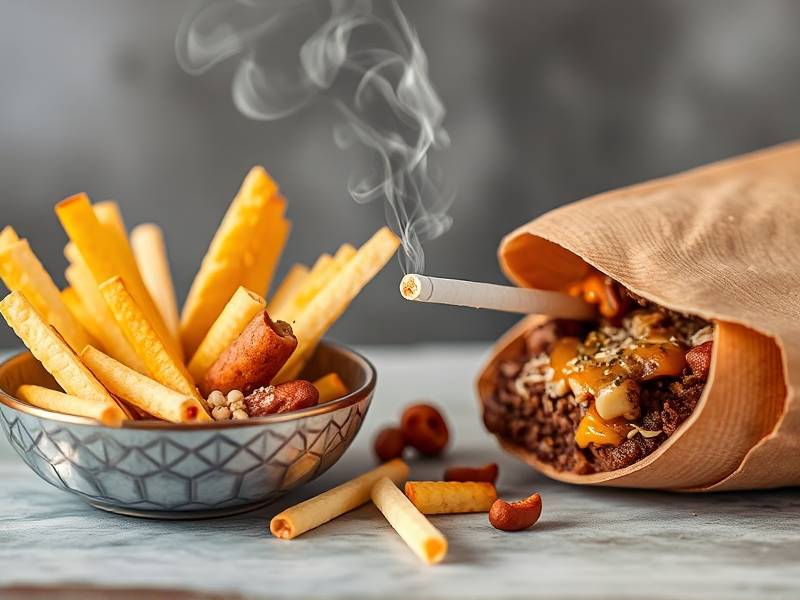What's the Best Food to Eat When You're Trying to Quit Smoking?
Navigating Nutrition: The Best Foods to Fuel Your Smoke-Free Journey

Introduction: Embarking on a journey to quit smoking is a significant step towards a healthier life. While the decision to quit is often the first hurdle, maintaining a nutritious diet can be equally crucial in supporting your body through this transformation. This article explores the best foods to consume when you're trying to quit smoking, offering both physical and mental health benefits.
1. Fruits: Nature's Antioxidants
Fruits are rich in vitamins, minerals, and antioxidants that can help combat the free radicals caused by smoking. Berries, such as blueberries and strawberries, are particularly high in antioxidants and have been shown to reduce inflammation.

Why Berries?
- Antioxidant Power: Berries contain flavonoids that can help protect your cells from damage.
- Brain Boost: The antioxidants in berries may also improve brain function and memory.
2. Leafy Greens: Your Body's Shield
Leafy greens like spinach, kale, and Swiss chard are packed with vitamins A, C, E, and K, as well as iron and calcium. These nutrients can help strengthen your immune system and support bone health.
Why Leafy Greens?
- Vitamin Powerhouse: They provide essential nutrients that smokers often lack.
- Inflammation Reduction: High levels of vitamin C can reduce inflammation in the body.
3. Lean Proteins: Building Strength
Protein helps repair damaged tissues and build muscle mass. Lean proteins like chicken breast, turkey, tofu, and legumes are excellent choices for those looking to quit smoking.
Why Lean Proteins?
- Muscle Repair: Protein aids in the repair of lung tissue.
- Satiety: High-protein foods can help curb cravings for nicotine.
4. Whole Grains: Energy Without Guilt
Whole grains such as oatmeal, brown rice, and quinoa provide sustained energy release without the spike in blood sugar that refined grains might cause.
Why Whole Grains?
- Energy Balance: They keep you feeling full for longer periods.
- Blood Sugar Stability: This helps prevent mood swings that might trigger smoking relapses.
5. Omega-3 Fatty Acids: The Brain's Friend
Omega-3 fatty acids found in fatty fish like salmon, sardines, and mackerel can help improve mood and reduce stress levels—both of which are crucial during the quitting process.
Why Omega-3s?
- Mood Enhancement: They have been linked to improved mood regulation.
- Stress Reduction: Omega-3s may help alleviate stress symptoms that lead to smoking relapses.
Conclusion:
Quitting smoking is not just about avoiding cigarettes; it's about nurturing your body with the right nutrients. Incorporating these foods into your diet can provide essential support for your smoke-free journey. Remember, every small change contributes to a healthier you!
